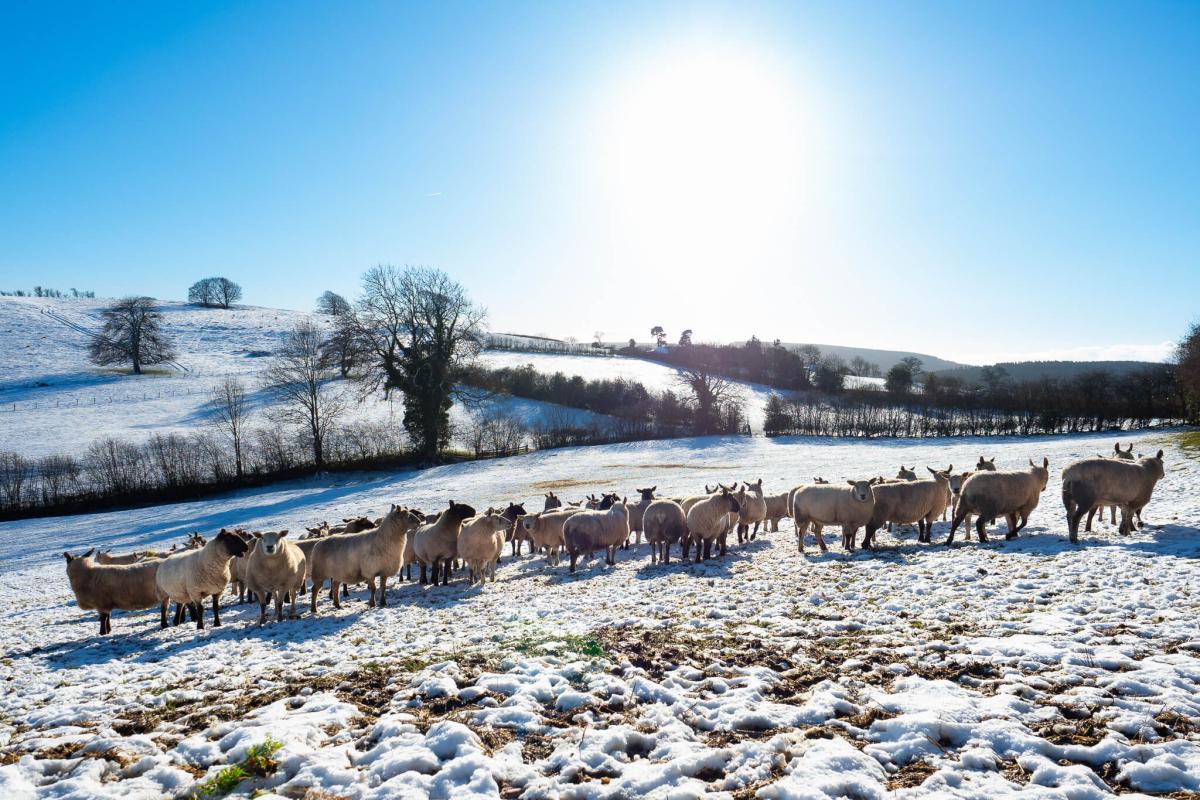
Winter presents unique challenges for farmers, from unpredictable weather to increased equipment demands. Ensuring the safety of your farm, livestock, and team during the colder months requires careful planning.
By addressing key areas of winter preparedness, you can minimise risks and maintain productivity. Here are essential tips for winter safety on the farm.
Need advice? Speak to our experienced team who are on hand to share decades of experience with you.
FARM SAFETY CHECKLIST
1. Prepare Your Equipment
Winter puts extra stress on farm machinery, so it’s vital to ensure your equipment is in top condition:
> Service and Maintenance: Schedule maintenance for tractors, generators, and other essential equipment before the frost sets in.
> Cold Weather Fluids: Use winter-grade oil and antifreeze to prevent engine damage.
> Battery Care: Cold temperatures can drain batteries. Check charge levels and keep spares on hand.
> Lighting: Install and test proper lighting on machinery to maintain visibility during shorter daylight hours. Consider installing lighting in high foot fall areas to ensure people on foot can see their route.
2. Protect Livestock
Livestock require special care during winter to stay healthy and productive:
> Shelter: Ensure sheds and shelters are windproof, dry, and adequately ventilated.
> Feed and Water: Increase feed rations as animals burn more energy to stay warm.
> Access: Clear pathways to feeding and watering areas to prevent slips or blockages.
> Health Checks: Monitor for signs of respiratory issues, or other winter-related conditions.
3. Ensure Personal Safety
Working on a farm in winter can be hazardous for farmers and workers alike:
> Clothing: Wear layered, insulated clothing that allows flexibility and retains heat. Don’t forget gloves, hats, and waterproof boots with good grip.
> Footpaths and Surfaces: Spread grit or sand to reduce the risk of slipping on icy surfaces.
> Visibility: Equip workers with high-visibility clothing, especially during dark mornings and evenings.
> Training: Remind workers of winter-specific safety protocols, such as using machinery in snowy or icy conditions.
4. Manage the Risks of Extreme Weather
Winter storms can arrive suddenly, so preparation is key:
> Emergency Kits: Keep emergency supplies, including first aid kits and torches readily accessible.
> Back-Up Power: Test generators and ensure you have enough fuel to power essential systems during outages.
> Drainage Systems: Check and maintain drainage to prevent flooding from heavy rain or melting snow.
> Weather Monitoring: Use reliable weather forecasting tools to plan daily tasks and anticipate extreme conditions.
5. Look After Your Farm Buildings
Buildings are often your first line of defence against winter weather:
> Roof Checks: Inspect roofs for weak points that could collapse under heavy snow.
> Insulation: Add insulation to maintain internal temperatures and prevent pipes from freezing.
> Doors and Windows: Seal gaps to keep out drafts and pests looking for warmth.
6. Review and Update Emergency Plans
Winter is an ideal time to assess and update your farm’s emergency procedures:
> Contact Information: Ensure emergency contacts for vets, suppliers, and local authorities are up to date.
> Evacuation Routes: Identify clear evacuation routes for livestock and people in case of severe weather or flooding.
> Team Briefings: Conduct regular safety briefings to ensure everyone is familiar with the plan.
Stay Safe This Winter
Taking proactive steps now can save time, money, and stress when winter bites. By preparing your equipment, protecting livestock, and safeguarding workers, you’ll ensure a smoother and safer season for everyone on your farm.
